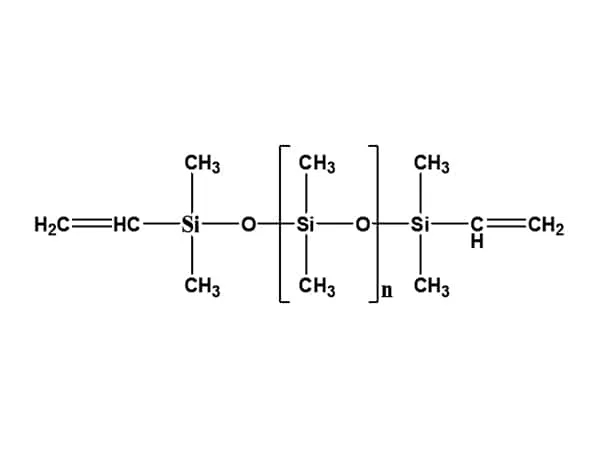Vinyl-terminated silicone fluid is a type of organosilicone compound where the polymer chain is terminated with vinyl (-CH=CH₂) groups. These fluids are part of the broader class of silicone polymers known for their unique properties, such as flexibility, thermal stability, and resistance to moisture and chemicals.
Structure: They consist of a backbone of alternating silicon and oxygen atoms (siloxane backbone) with vinyl groups attached to the silicon atoms.
Flexibility: They are highly flexible due to the presence of the siloxane backbone.
Thermal Stability: They exhibit good thermal stability over a wide range of temperatures.
Chemical Inertness: Like other silicones, they are inert to many chemicals, making them useful in harsh environments.
Reactivity: The vinyl groups can undergo various reactions such as addition polymerization, allowing for cross-linking and modification.
Applications:
Sealants and Adhesives: Used in the formulation of sealants and adhesives due to their adhesive properties and flexibility.
Coatings: Can be used as coatings for surfaces that require water repellency and chemical resistance.
Modifiers: Serve as modifiers in formulations to enhance properties like flexibility and durability.
Cross-linking: Vinyl-terminated silicone fluids can be cross-linked using various methods, such as platinum-catalyzed hydrosilylation, to form elastomers or gels.
